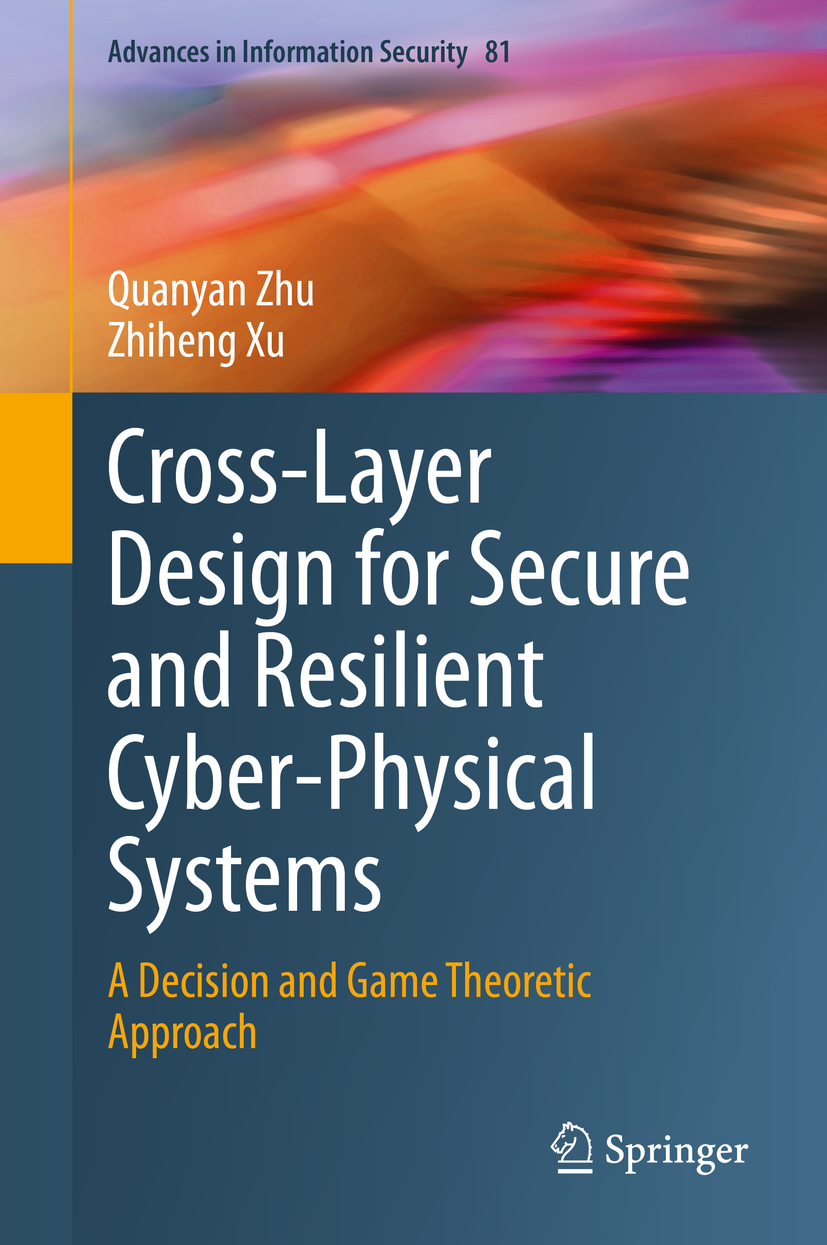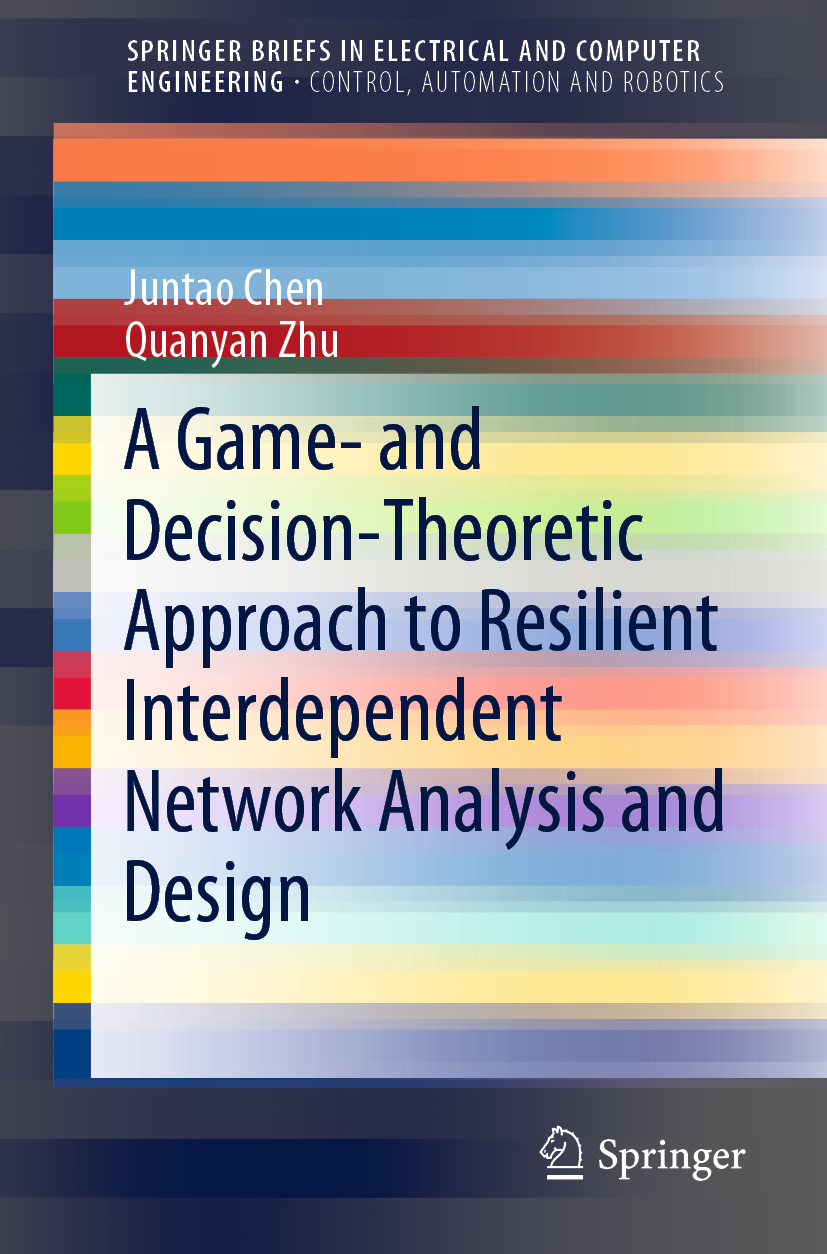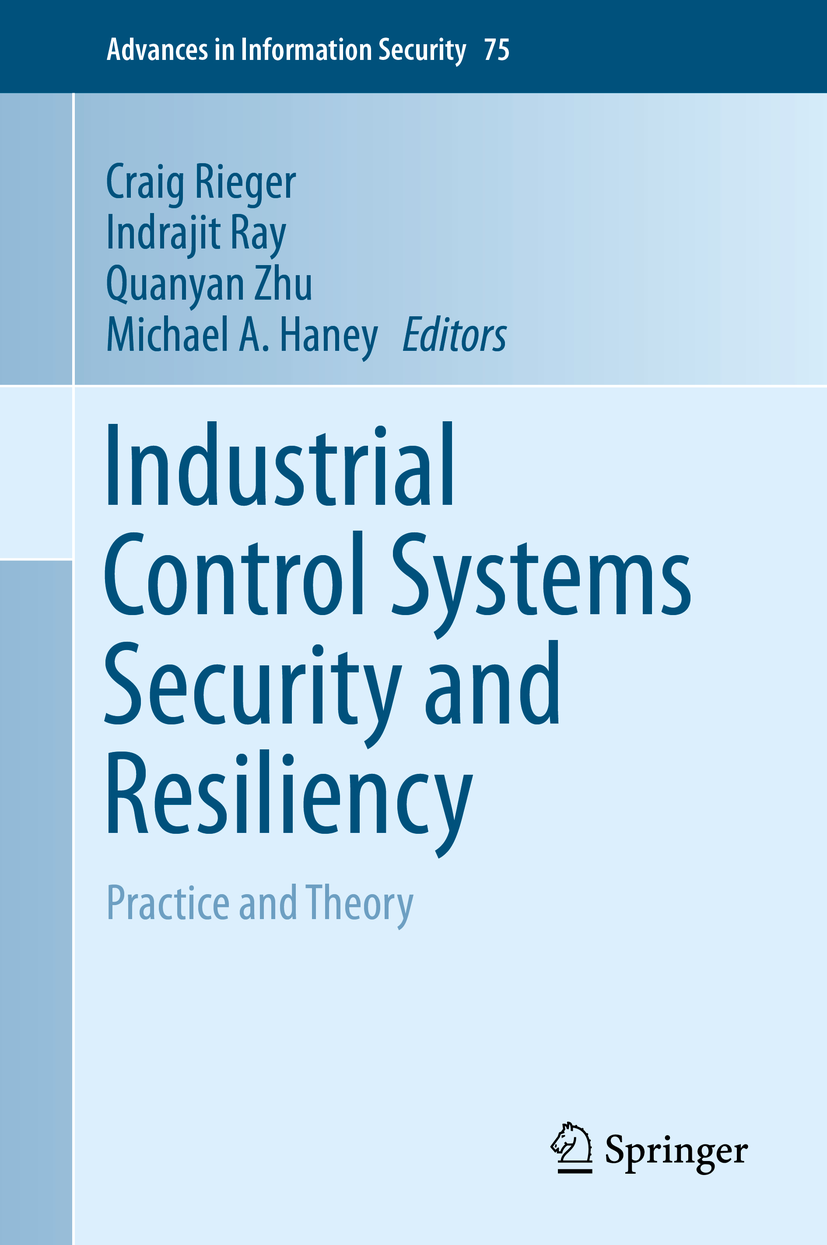Quanyan Zhu releases a trio of new books

If there’s any truth to the old aphorism “publish or perish,” Quanyan Zhu, an associate professor of electrical and computer engineering, seems in no danger of perishing any time soon. Within the last several months, Springer has published three new titles either co-authored or co-edited by Zhu, on a variety of topics.
11/20/20 Update: Zhu publishes yet another volume as the year comes to a close.

Cross-Layer Design for Secure and Resilient Cyber-Physical Systems: A Decision and Game Theoretic Approach
(co-authored with Zhiheng Xu) is part of Springer's Advances in Information Security series. It introduces a cross-layer design to achieve security and resilience for CPSs (Cyber-Physical Systems). The authors interconnect various technical tools and methods to capture the different properties between cyber and physical layers. Part II of this book bridges the gap between cryptography and control-theoretic tools. It develops a bespoke crypto-control framework to address security and resiliency in control and estimation problems where the outsourcing of computations is possible. Part III bridges the gap between game theory and control theory and develops interdependent impact-aware security defense strategies and cyber-aware resilient control strategies.

Cyber-Security in Critical Infrastructures: A Game-Theoretic Approach
(co-authored with S. Rass, S. Schauer, and S. König) is part of Springer’s “Advanced Sciences and Technologies for Security Applications.” In it, Zhu and his co-authors offer an educational approach to security based on game- and decision theory for critical infrastructures. The volume, which requires only a very basic understanding of mathematics, presents a compendium of selected game- and decision-theoretic models. The authors explain that given contemporary reports on security incidents of various kinds, there has been a paradigm shift to attacks of an increasingly heterogeneous nature, combining different techniques into what we know as an advanced persistent threat. Security precautions must match these diverse threat patterns in an equally diverse manner, and to that end, the book provides a wealth of techniques for protection and mitigation.

A Game- and Decision-Theoretic Approach to Resilient Interdependent Network Analysis and Design
(co-authored with J. Chen) is part of Springer’s “Briefs in Control, Automation and Robotics.” In it, the authors discuss future challenges in the analysis and design of interdependent networks and provide an up-to-date summary of recent research findings, with the aim of maximizing reader insights into static and dynamic network resilience analysis and design. The authors pay particular attention to critical infrastructure systems, such as electric power, water, transportation, and communications and examine how infrastructure networks are becoming increasingly interconnected as the integration of Internet of Things devices, and how a single-point failure in one network can propagate to other infrastructures, creating an enormous social and economic impact.

Industrial Control Systems Security and Resiliency: Practice and Theory
(co-edited with C. Rieger, I. Ray, and M. Haney) is an installment in the series “Advances in Information Security.” The volume provides a comprehensive treatment of the state-of-the-art tools and techniques available for designing secure and resilient industrial control systems, including research prototypes. The coeditors have selected pieces by international experts from academia, industry, and government that shed light on how R&D technologies must transition to minimize cyber risk in the coming years, and they explore the relationships between cyber, physical, and human aspects in industrial control systems and their impact on security and resiliency.

